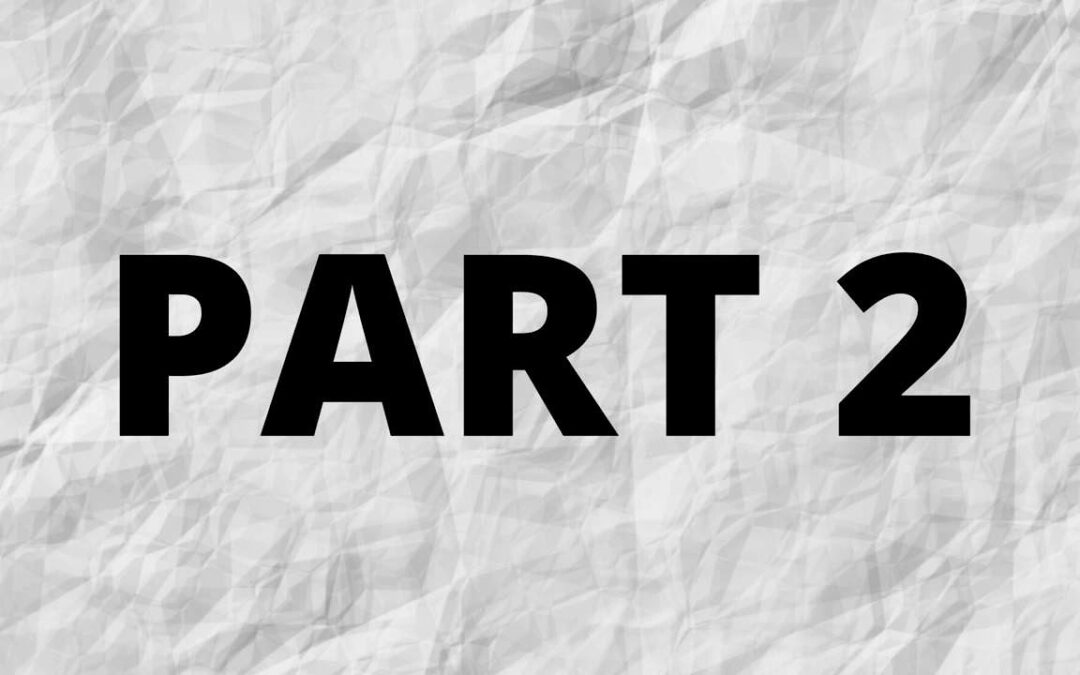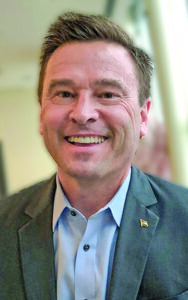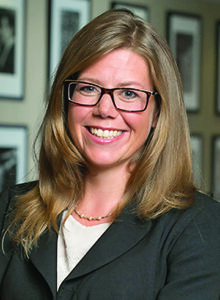‘No One Is Above The Law’ — Except The IEC
PART II
The IEC Commissioners: It is argued that persons with strong unethical traits often volunteer for unpaid ethics panels in order to hide their own potential improprieties. Critics have opined that is particularly true of the Colorado Independent Ethics Commission which has successfully exempted itself from all laws and ethical restraint other than expressly found in in the Colorado State Constitution.
President Theodore Roosevelt in his presidential address to Congress in 1903 stated that no one was above the law, but he had never encountered the Colorado Independent Ethics Commission (the “IEC”).
It was formed December 31, 2006, after passage of Amendment 41 to the State Constitution which voters thought to watch over excessive gifts to politicians. The IEC likes to portray itself as having “no investigators, little authority” (The Denver Post published January 3, 2016). But any citizen who has ever encountered the IEC as a target would never concur.
Dirty Tricks Operation
As indicated in our April 2023 edition, the IEC has grown into a massive dirty tricks operation where savvy political operatives from both parties can wreak havoc on the lives of their political opponents. Due to a decision by the Colorado Supreme Court, the IEC now has the ability to go after any citizen who comes under the very broad heading of “public officers, members of the general assembly, local government officials [or] government employee” who is subject to any type of “standards of conduct” however that is defined. The group covered by the definition is potentially hundreds of thousands of Coloradans, which is referred to as the “Target Group” of the IEC.
Once people begin to understand the incredible breadth of the IEC, jealous boyfriends, vengeful ex-spouses, unscrupulous business competitors, and shady lawyers will learn to manipulate the IEC system to attack and greatly harm anyone in the IEC’s Target Group. That is if they have friends inside the IEC.
Supreme Court Wreaks Havoc
The Colorado Supreme Court ruled in Gessler v. Smith (2008) that the IEC could force the one-time Colorado Secretary of State Scott Gessler to appear before its tribunal and fine him on the basis of a complaint by his political opponents that he used his state provided discretionary funds to help partially pay for a trip to Florida to speak at a” National Election Law Seminar” before the Republican National Convention. The claim was that he misused $1,456.89 public funds would normally be a criminal matter. Gessler’s political opponents in fact sent a letter to the applicable chief of police and the district attorney who apparently found the claims to be spurious and declined to charge the Secretary with any wrongdoing.
Prior to the IEC that would have the end of the matter but Gessler’s opponents also filed the same complaint letters with the IEC which to Gessler’s shock claimed it had jurisdiction. The basis of the jurisdiction was the claim that Colorado law holds in C.R.S. section 24-18-103 that a public office is a “public trust” and “that [a] public officer shall carry out his [or her] duties for the benefit of the state.” The IEC claimed the trip was more partisan or personal in nature and fined Scott Gessler $1,278.90. Gessler’s fees in fighting the IEC were over a half million dollars.
Pandora’s Box
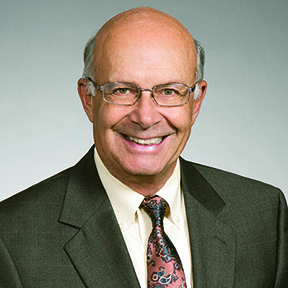
Insider: Bernie Buescher, a shadowy lawyer, is believed by those in the know to be an expert in the dark arts involving the IEC.
By that decision the Colorado Supreme Court opened an enormous Pandora’s box which vastly exceeded what any voter thought they were approving when they voted for Amendment 41. There are now literally tens of thousands of cases that can be brought before the IEC every year.
The key, however, to the IEC scam is that you must have an “in” at the IEC or know someone who does like lawyer and former interim Secretary of State Bernie Buescher. The IEC has only one investigator and the IEC tribunal meets only once per month, thus it can take very few cases. It has rejected almost 90% of the cases brought before it. Under Amendment 41 the IEC “may dismiss frivolous complaints without conducting a public hearing. Complaints dismissed as frivolous shall be held confidential by the commission.”
The IEC meets in private and decides what cases are “frivolous” without rhyme or reason or explanation. The IEC often waits months or even years before deciding if it wants to hear a complaint, and during that time the IEC must keep it confidential. But that does not mean the person filing the complaint has to. He or she can go to the media and herald that it has filed an ethics complaint and attack you about a complaint you have never seen and is not a public record that is available for review.
Bringing Hick Down
This is exactly what happened to Governor, now Senator, John Hickenlooper. Frank McNulty, the former Republican Speaker of the House, is speculated to have heard that the lead commissioner of the IEC, New York attorney Bill Leone, was dying to get back at Hickenlooper for not reappointing him to the commission. Leone had outwitted Hickenlooper by having the Republican leader of the Senate do so. McNulty formed something called the “Public Trust Institute” to lodge an IEC complaint on October 12, 2018 claiming Hickenlooper had accepted flights, lodging, and meals from private individuals in 2017 and 2018. McNulty went on the media about his ethics complaint which Hickenlooper had never seen and could not get a copy of.
In record time with Bill Leone riding the herd, the IEC declared the complaint “non-frivolous” and was off to a yearlong investigation that dogged Hickenlooper until he finally gave up and a paid a $2,750 fine after spending hundreds of thousands in legal fees.
Above The Law

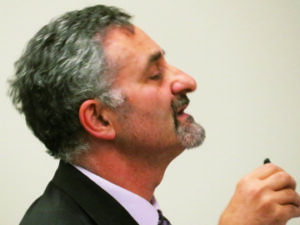
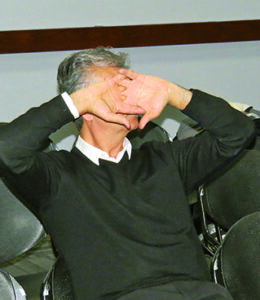 The IEC argues that it is subject to no ethical rules or standard of conduct because Amendment 41 was an amendment to the State Constitution and is therefore superior to the laws of the state. Amazingly the Colorado Court of Appeals agreed. M.A.K. Investments LLC d/b/a Persian and Oriental Rugs had brought a flurry of lawsuits against the City of Glendale starting in 2015 to try to get Glendale to approve a colossal apartment building. Glendale was successful in getting all of the lawsuits dismissed. At the same time, M.A.K. filed an ethics complaint against a mayor and a councilman in Glendale which it trumpeted to the media but which no could see and which under IEC rules, the IEC would neither confirm or deny.
The IEC argues that it is subject to no ethical rules or standard of conduct because Amendment 41 was an amendment to the State Constitution and is therefore superior to the laws of the state. Amazingly the Colorado Court of Appeals agreed. M.A.K. Investments LLC d/b/a Persian and Oriental Rugs had brought a flurry of lawsuits against the City of Glendale starting in 2015 to try to get Glendale to approve a colossal apartment building. Glendale was successful in getting all of the lawsuits dismissed. At the same time, M.A.K. filed an ethics complaint against a mayor and a councilman in Glendale which it trumpeted to the media but which no could see and which under IEC rules, the IEC would neither confirm or deny.
However, Glendale believed the IEC was scheming for hours behind closed doors to get around the fact the provisions in Amendment 41 expressly deny its jurisdiction over home rule cities and counties that have their own ethical rules and proceedings like Glendale. Colorado Open Meetings Law expressly prohibits such unethical conduct.
Moreover, the IEC appeared to be hiding documents from the public as prohibited by the Colorado Open Records Act.
IEC claimed that it is not subject to such laws as it was formed under an amendment to the state constitution and only “the [state] constitution constrains the IEC….” Notwithstanding, the Colorado Freedom of Informational Coalition, and the Colorado Press Association opposing that interpretation, the Colorado Court of Appeals held in its favor in an unpublished 2020 opinion. . Unpublished opinions are supposed to be for unimportant decisions but it is also a way of hiding opinions that a court is ashamed of.
As pointed out by attorney Josh Weiss it is not clear that anyone could challenge the IEC if it decided to never have another public meeting or make available a single record as “they appear to operate in a special space where they make their own rules but aren’t subject to much review.”
No one is above the law, except the IEC.
Next Edition: Part III, The Glendale Saga

